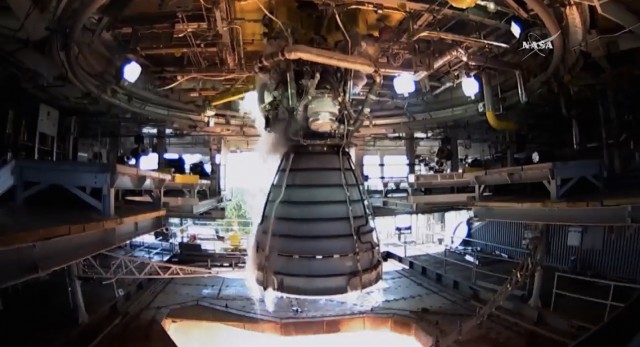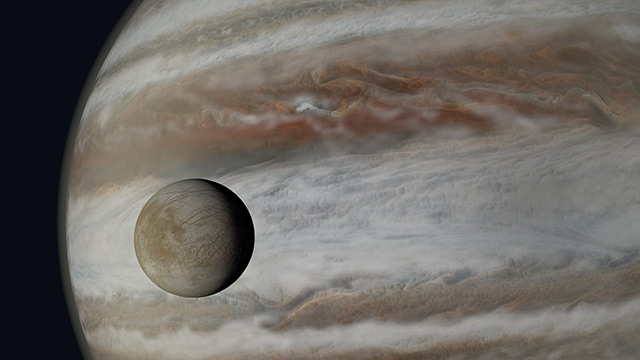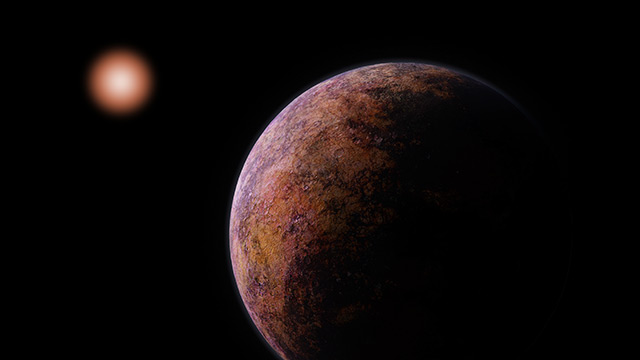NASA successfully tested the first RS-25 rocket engine for 500 seconds on March 10th. The incident was a major milestone for the future of space exploration. The RS-25 rocket will be used as part of the Space Launch System (SLS), which is designed to send astronauts to unexplored territories, including asteroids and Mars.
“What a great moment for NASA and Stennis,” said Rick Gilbrech, director of NASA’s Stennis Space Center in Bay St. Louis, Mississippi. “We have exciting days ahead with a return to deep space and a journey to Mars, and this test is a very big step in that direction.”
According to a press release made by NASA, “The next time rocket engine No. 2059 fires for that length of time, it will be carrying humans on their first deep-space mission in more than 45 years.”
The little engine that could
RS-25 rocket engines aren’t exactly new. They have been used for 135 space shuttle missions between 1981 and 2001. When the space shuttles retired, sixteen RS-25 engines remained, four of which will be combined into the SLS. Together, they will produce 2 million pounds of thrust.
Aerojet Rocketdyne, the prime contract for the RS-25 engine, have made changes to the engine in order to meet performance standards set for the SLS. These changes will allow the engine to operate at 109 percent thrust levels, which is five percent greater than thrust levels usually used for a space shuttle. Since RS-25 engines have been used on more than 100 space shuttle missions, Aerojet Rocketdyn parades them as “the world’s most reliable rocket booster engine.”
During the space shuttle program, RS-25 engines would be reused after space shuttles returned home. Since the engines are expendable, they will provide four flights with the SLS. Last November, Aerojet Rocketdyne was awarded a $1.16 billion contract to modify the RS-25 engine.
NASA Stennis Space Center in Mississippi will continue to conduct tests on the engines, as NASA’s Marshall Space Flight Center in Alabama heads the SLS program. The rocket’s first unmanned flight will take place at the Kennedy Space Center in Florida.
The recent test was conducted to verify the engine’s upgraded capacities and to substantiate operating conditions required by the SLS.
“Not only does this test mark an important step towards proving our existing design for SLS’s first flight, but it’s also a great feeling that this engine that has carried so many astronauts into space before is being prepared to take astronauts to space once again on SLS’s first crewed flight.” said Steve Wofford, at NASA’s Marshall Space Flight Center.
An uncertain future
The SLS will hold the Orion capsule, which will carry six crew members on board to space destinations set by NASA’s Journey to Mars initiative. Whether this will ever become a reality is uncertain. Inadequate funding and an ill-defined mission manifest put the future of the SLS in doubt. Other factors, including who is elected the next president of the United States, will play a role as well. Skeptics have chastised the SLS as a “rocket to nowhere,” according to TechCrunch.
Nevertheless, critics haven’t dampened Wofford’s enthusiasm over the recent test. “It’s a great feeling that this engine — that has carried so many astronauts into space before — is being prepared to take astronauts to space once again on SLS’s first crewed flight,” he said.
NASA states the first unmanned SLS flight will launch before November 2018. If everything goes according the plan, the SLS will carry six crew members on board the Orion capsule somewhere between 2021 and 2023.
Sources include:
Inquisitr.com
NASA.gov
TechCrunch.com
FastCompany.com
Science.NaturalNews.com
















